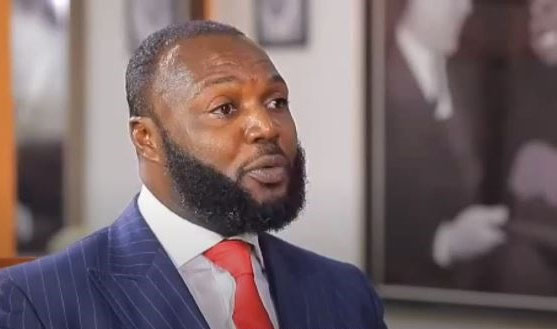William Ato Essien
The founder and Chief Executive Officer (CEO) of defunct Capital Bank, William Ato Essien, shed tears yesterday as he continued his examination-in-chief in the GH¢620m trial where he and two others are accused of stealing from the bank, leading to its insolvency.
The accused was telling the court about the overall performance of the insolvent bank against other banks in the country following its classification as class one universal bank, when he started showing signs of emotional breakdown.
Genesis of Bank
Mr. Essien began telling the court about the genesis of Capital Bank, explaining how it metamorphosed from First Capital Plus Money Lending and Microfinance Company which later became First Capital Plus Savings and Loans before Bank of Ghana gave it licence to become a universal bank.
“In 2011, First Capital Plus Savings and Loans applied to become a Class One universal bank from its savings and loans status. Later 2011, we received a provisional licence with conditions precedent to be fulfilled. By the Grace of God, latter part of 2012, all of the conditions precedent were duly fulfilled and the final approval of a class one universal banking licence was granted. And so First Capital Plus Bank started its operations as a class one universal bank early 2013,” Mr. Essien told the court.
Bank Performance
Baffuor Gyau Ashia Bonsu, who held the brief of Thadeus Sory for the accused person asked him what “was the performance Capital Bank as against the other banks when it became a fully-fledged universal bank?”
Mr. Essien said based on the banking survey in 2015, Capital Bank had risen from number 23 to number 16 by reference of its performance among its peers.
He said in 2016, Capital Bank was adjudged as the fastest growing bank and in the latter part of 2016, and the first quarter of 2017, according to an on sight report by the Bank of Ghana, Capital Bank was rated number eight (8) among the community of banks in Ghana.
Voice Change
It was at this point that Mr. Essien’s voice changed and his eyes was filled with tears, which prompted his lawyer to plead with the court if the accused person could be provided with a tissue paper to wipe the tears and a woman from the gallery offered him a pack.
Mr. Essien after wiping his tears was then offered a bottle of water by the court and he continued his examination-in-chief by indicating that Capital Bank was on its way to drive the first and foremost innovative product of putting money on mobile phones.
Cedipe Platform
“The product name is called ‘Cedipe’. In the first year of our operation in 2013, we had a customer base of 120,000 current account, an unprecedented achievement that has never happened in any bank at its infant stage. My Lord, ‘Cedipe’ was so successful to the extent that customers began to deposit money by our scratch cards as a means of payment and so my Lord, the board and management decided to revise the name from ‘Cedipe’ to speed banking,” he said.
He continued that “speed banking is what has come to be known as MoMo by MTN, Tigocash by AirtelTigo, and Vodacash by Vodafone. In a recent report by the Bank of Ghana, mobile money has hit a whopping GH¢100 billion by way of transaction in just a month. My Lord, this is the vision that Capital Bank stood for. And so in front of how well we were doing as a bank, there was absolutely no doubt that all that it required just a matter of time and Capital Bank would have become a household name.”
Bank Objective
The lawyer then asked the accused person the main objective of Capital Bank, and Mr. Essien said the bank had five objectives.
“The first was to provide timely and relevant financial solution to the small and medium enterprises. The second was the focus to eradicate financial illiteracy through organised workshops. The third was to increase the unbanked from the informal sector to the banking sector. The fourth was to graduate micro and small enterprises into medium and eventually large enterprises. The last focus was to achieve banking convenience for our masters – we call our customers masters through the use of technology. So even at the savings and loans level, we were the first Savings and Loans Company to have issued cheque books and ATM cards with fully fledged ATMs at all our 15 branches at the time,” he said.
Initial Capital
Asked about how initial capital was raised for the formation of Capital Bank, he said First Capital Plus money lending and micro finance started with an initial capital of Gh¢500,000 which grew to GH¢12 million plus balance sheet size in 2008.
He said they were able to roll out capitalisation of the required amount by the Bank of Ghana out of the GH¢12 million at the time and the company from 2009 up until 2013 grew shareholder funds from GH¢12 million to GH¢62 million.
“By the grace of God, it was out of these shareholder funds in loans and advances that were presented to the Central Bank and upon due diligence from the Central Bank on both the Capital availability and verification together with the fit and proper test conducted by the Bank of Ghana in addition to other operational precedents, we received approval to operate as a class one universal bank from the savings and loans status in 2013.
Hearing continues on November 18.
BY Gibril Abdul Razak


